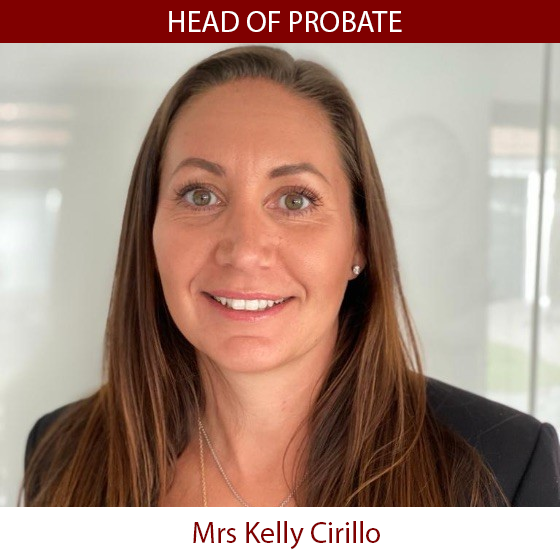Deputyship
When someone in England or Wales loses mental capacity and has not made a Lasting Power of Attorney (LPA), a Deputy may be appointed by the Court of Protection to make decisions on their behalf. This process is overseen by the Office of the Public Guardian (OPG).
How can Preuveneers LLP help you?
Navigating the process of applying to the Court for Deputyship can feel overwhelming, especially during an already stressful time. By instructing Preuveneers LLP, you can rest assured that we will handle all the intricate details and paperwork on your behalf, taking the pressure off your shoulders.
Our friendly team is here to guide you every step of the way, making the process as smooth and stress-free as possible.
What is a Deputy?
A Deputy is a person or organisation authorised by the Court of Protection to make decisions for someone who lacks mental capacity (known as “P”). Deputies are most commonly appointed to manage someone’s property and financial affairs, although they can also be appointed for health and welfare decisions (though this is less common).
The Mental Capacity Act 2005 details the Court’s powers in appointing Deputies.
Who Can Be a Deputy?
Eligible:
- Family members or close friends
- Professionals (e.g. solicitors or accountants)
- Local authorities (in some cases)
Not eligible:
- Undischarged bankrupts (for financial Deputyships)
- Those with criminal convictions for fraud or financial abuse
- Individuals who are unable to demonstrate they can act in P’s best interests
- Individuals under 18
Responsibilities of a Deputy
A Deputy must:
- Always act in the best interests of the person they’re acting for
- Only make decisions the Court says they can
- Keep proper accounts and records of financial transactions
- Submit an annual Deputy report to the OPG
- Duties are covered in the Mental Capacity Act Code or Practice: Mental-capacity-act-code-of-practice.pdf
What Decisions Can a Deputy Make?
There are two types of application, Property and Financial Affairs and Health and Welfare.
Property and Financial Affairs Deputy:
This type of Deputy is responsible for managing the person’s money and property. Their duties may include paying bills, collecting benefits or pensions, managing bank accounts, and if necessary, selling property.
Health and Welfare Deputy:
This type of Deputy makes decisions about the person’s care and day-to-day welfare. This could include decisions about where they live, what kind of care they receive, and sometimes medical treatment.
In practice, the Court is more likely to appoint a Property and Financial Affairs Deputy, as Health and Welfare Deputyship is usually only granted in specific circumstances where ongoing decisions are needed.
Preuveneers LLP will discuss what needs P has and advise on what applications are available.
Starting Point:
Before applying to become a Deputy, it’s important to have a formal assessment of P’s mental capacity.
This is because the Court of Protection will only appoint a Deputy if it is satisfied that P cannot make certain decisions for themselves.
Having the assessment completed at the outset confirms that the correct course of action is to apply to be a Deputy. By arranging the assessment first, Preuveneers LLP can guide you through the process with clarity and confidence.
Application:
When applying to become a Deputy, there are two main routes: individuals can complete paper forms and send them to the Court of Protection, or as solicitors Preuveneers LLP can apply using the Court’s secure online portal.
The online portal is a quicker, more streamlined process available only to solicitors, which allows applications to be submitted directly to the Court digitally.
This reduces delays, avoids common errors that can happen with paper forms, and means the application can be tracked more efficiently.
By instructing Preuveneers LLP, you benefit from both our legal expertise and access to this faster system, which can make the whole process smoother and less stressful than handling it alone.
Cost and Time
Application Fee:
- £421 to apply
- Additional £494 if a Court hearing is needed
Ongoing Fees:
- Supervision fee (annually):
- £320 for general supervision
- £35 if under minimal supervision (e.g. for small estates under £21,000)
- Assessment fee for new deputies: £100
Fee Reductions:
- Available through Form EX160 (based on income and savings)
Preuveneers LLP can discuss the fees and advise on whether a reduction or fee omission can be claimed.
Timeframe:
- The full process can take 4 to 6 months, depending on Court workload and complexity
This can be longer during busy times and the Court can ask for further information or issue an interim order to enable the applicant to seek more information where not available from the outset.
Information Needed for Application
- Personal details of the person needing a Deputy (P)
- Details of the proposed Deputy (name, DOB, relationship to P)
- Medical evidence of lack of capacity (COP3)
- Details of P’s finances and assets (for financial Deputyship)
- Any known objections or concerns
Supervision and Reporting
Once appointed Deputies are subject to ongoing supervision and must deliver annual accounts.
- Deputies are supervised by the OPG
- Must complete and submit an annual report outlining decisions made and money spent
- The OPG can conduct random checks or visits.
Once appointed Preuveneers LLP can assist with the annual return and provide you with advice and ongoing assistance on what you can and cannot do as a Deputy.
Can Deputies Make Gifts?
No, not without restrictions.
- Deputies can only make reasonable gifts on behalf of P, such as for birthdays or seasonal holidays and only if P previously gave such gifts when they had capacity.
- Larger or unusual gifts (e.g. for inheritance tax planning or large transfers of money) require permission from the Court of Protection.
Applying to Make a Gift:
- Fill in form COP1 (application form)
- Include COP24 (witness statement) and COP1B (supporting information)
- Submit to the Court of Protection for approval
Fees for Deputyship applications start from £1,500 + VAT and disbursements. To request a quote or find out more about Deputyship application, please either attend our office, or call on 0208 646 4885 or email us: Kelly@p-llp.net.








